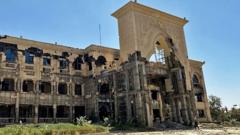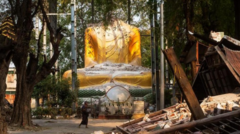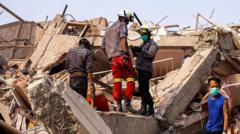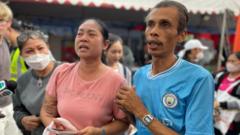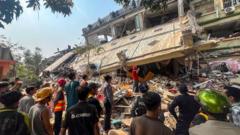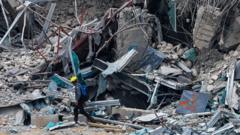Over 1,600 fatalities have been reported following a devastating earthquake in Myanmar, coinciding with increased military airstrikes. The country grapples with humanitarian needs as rebel factions gain ground, complicating aid distribution.
Tragedy and Turmoil: Myanmar Faces Dual Crisis

Tragedy and Turmoil: Myanmar Faces Dual Crisis
Amidst a catastrophic earthquake, Myanmar’s military escalates its suppression tactics.
In a catastrophic weekend for Myanmar, the nation was shaken by a major earthquake that left over 1,600 people dead and more than 3,000 injured, marking the most destructive quake in over a century. Significant damage was reported, especially in Mandalay, where an aftershock triggered further destruction, particularly to buildings that had previously withstood the initial quake's force. As the crucial 72-hour survival window for those trapped begins to close, concern is mounting for the many who remain unaccounted for.
Compounding this natural disaster, the military junta has ramped up its ongoing bombing campaign amidst a civil war that has long plagued the region. Before the earthquake, nearly 20 million people were already in urgent need of shelter and food, according to United Nations reports. The Arakan Army, a prominent rebel group, has seized control of significant portions of Rakhine State and may leverage this tragic moment to expand their influence within the country.
International aid is beginning to funnel in; however, skepticism persists regarding the Myanmar Army's handling of relief efforts. Scot Marciel, former U.S. ambassador to Myanmar, noted the military's historical tendency to weaponize aid, raising alarms about the appropriate distribution of resources during a time of crisis. As the country contends with both devastation and despair, the future remains uncertain.

